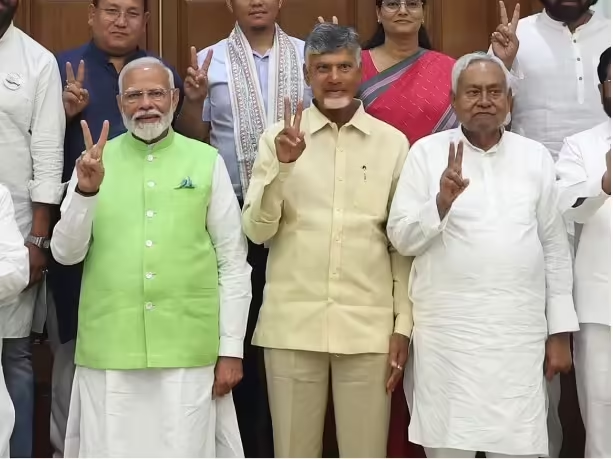As Prime Minister Narendra Modi embarks on his third consecutive term, attention has shifted to the crucial post of Lok Sabha Speaker. The adage “jiska speaker, uski sarkar” (whose speaker, their government) underscores the significance of this position, a lesson vividly recalled from the 1999 collapse of the Vajpayee government.
In 1999, the Atal Bihari Vajpayee-led government fell after narrowly losing a trust vote in the Lok Sabha. The pivotal moment came when the Lok Sabha Speaker, GMC Balayogi of the Telugu Desam Party (TDP), allowed Odisha Congress leader Giridhar Gamang to vote despite Gamang being recently sworn in as the Chief Minister of Odisha. Gamang’s single vote against the government tipped the balance, resulting in the Vajpayee administration’s downfall by just one vote—269 for and 270 against.
This historical episode has reignited discussions on the power and influence of the Lok Sabha Speaker as the National Democratic Alliance (NDA) eyes the post once again. Reports indicate that the TDP, the second-largest NDA constituent, has sought the Speaker’s position, a role they held when Vajpayee’s government collapsed.
Prime Minister Modi’s recent election win saw the BJP securing 240 seats in the 543-member Lok Sabha, falling short of the 272-seat majority mark. This contrasts sharply with Modi’s previous two terms, where the BJP held a clear majority. The current scenario mirrors the situation Vajpayee faced in 1999, where alliance dynamics were critical.
The Speaker’s role is pivotal in maintaining order and interpreting the rules of the House, making decisions that can influence legislative outcomes. The Speaker also presides over joint sessions of Parliament and has a tie-breaking vote in case of a deadlock. Their discretion in decisions, such as determining the nature of bills, further highlights the position’s importance.
Given the BJP’s need to navigate a coalition government, the choice of Speaker becomes even more strategic. The TDP, led by N. Chandrababu Naidu, has reportedly staked its claim to the post, evoking memories of the 1999 incident. Additionally, Shiv Sena (UBT) leader Aaditya Thackeray has suggested that the Janata Dal United (JD(U)) also has a claim.
This situation presents a potential shift from the BJP’s strategy over the past decade, where they appointed the Speaker from their own ranks due to their parliamentary majority. The decision on the Speaker’s appointment in Modi 3.0 is thus poised to be a significant test of the BJP’s coalition management skills.
The power vested in the Speaker is not just about wielding authority but ensuring the smooth functioning of the House. The Speaker’s impartiality is paramount, as highlighted by the Supreme Court of India, which emphasizes that the duties of the Speaker should transcend party lines. This principle was notably upheld by Somnath Chatterjee, a former Lok Sabha Speaker, who faced expulsion from his party for prioritizing his duties over party allegiance.
As Modi’s new term unfolds, the appointment of the Lok Sabha Speaker will be watched closely. It will not only reflect the internal dynamics of the NDA but also set the tone for parliamentary proceedings in the coming years. The legacy of the 1999 vote and the lessons learned will undoubtedly weigh heavily on this crucial decision.











